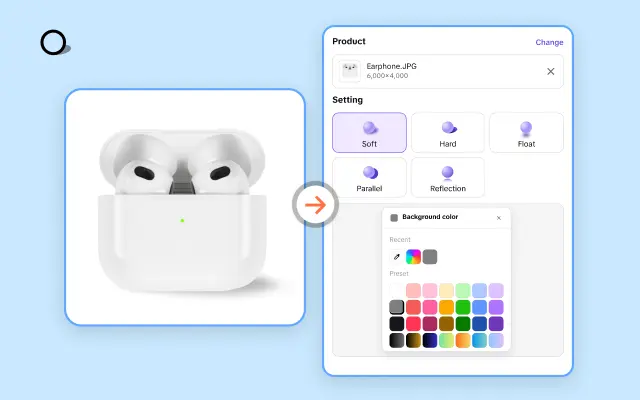what does la mean in chinese
La in Chinese (辣) means "spicy" in English. While this platform centers on e-commerce templates, seek dedicated language resources for exploring culture-specific meanings like "La."

80 results found for "what does la mean in chinese"
Videos
Images
All the Smart Tools You Need to Streamline Your Content Creation

Video Editor
A powerful all-in-one video editing tool packed with features.

Sales Poster
Effortlessly create AI-powered promotional posters for your products.

Smart Crop
Crop videos to perfectly fit any platform's aspect ratio.
Custom Avatar
Create your own unique digital avatar for a personalized touch.

Image Editor
Your go-to tool for creating and editing images with ease.

Quick Cut
Speed up video editing by transcribing and editing directly from text.

Remove Background
Instantly remove backgrounds from images with one click.

AI Model
Showcase your clothing on AI models for an immersive try-on experience.

AI Shadows
Add lifelike shadows and lighting to products for enhanced realism.
About what does la mean in chinese
Curious about what "La" means in Chinese? While "La" may seem simple, its meaning can vary depending on the context, the tone, or even whether it's written or spoken. Unlike English, where words often have fixed definitions, Mandarin Chinese is a tonal language where slight changes in pronunciation can lead to entirely different meanings. Let’s delve into the possibilities.
In Chinese, "La" is often seen as a particle, an auxiliary word used in conversational speech to convey mood, emphasize a statement, or signify a change of status. For instance, it can appear at the end of a sentence to make the tone more casual or friendly. You might hear someone say, "We’re going to the park, la," which adds a sense of enthusiasm or informality.
When written, "La" might appear as part of a Chinese character or transliteration. For example, in Pinyin (the Romanized system for Chinese), "拉" (lā in standard tone) means "to pull" or "to drag." However, in colloquial expressions, it could serve as an exclamation or a way to smooth out speech, depending on regional dialects.
Understanding "La" takes nuance and context—a hallmark of Chinese linguistics. Want to explore more fascinating insights into tones and linguistic nuances? Dive deeper with Pippit’s specialized language content to unlock the treasures of language and communication. Whether you're broadening your skills or simply satisfying curiosity, start your exploration today!
